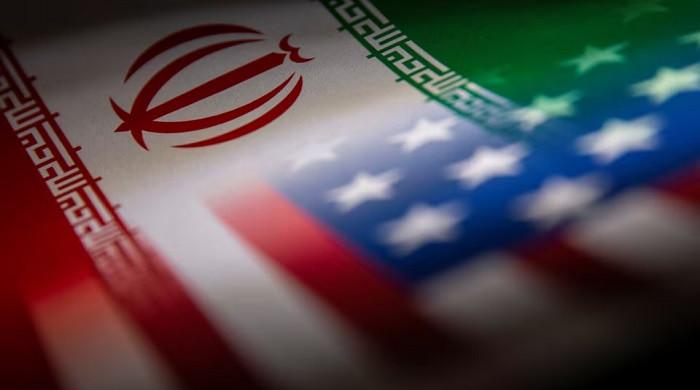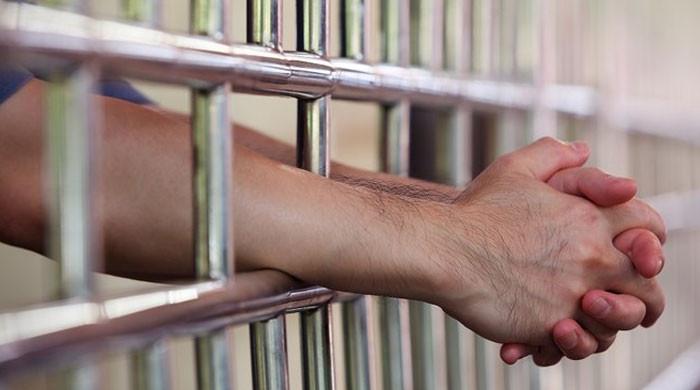Two years on, American Jews turn sharply against Israel's genocidal war in Gaza: survey
Shift reflects a broader global reckoning with Israel's prolonged military assault in Gaza that has continued for two-years
October 08, 2025

As Israel’s devastating war on Gaza enters its third year, opposition is mounting not just globally — but from within the Jewish community itself. A growing number of American Jews are publicly condemning Israel’s actions as war crimes and genocide, marking a significant rupture in what was once assumed to be unwavering diaspora support, The News reported.
This shift reflects a broader global reckoning with Israel's prolonged military assault, launched after Hamas’s October 7 attack. From Washington to Sydney, public opinion is turning. A recent survey poll found that 42% of US adults disapprove of the Trump administration’s handling of the conflict, while in Australia, there is increasing support for sanctions against Israeli leaders. Even within Israel, a majority now believe the Gaza war must come to an end.
According to a Washington Post poll many American Jews sharply disapprove of Israel’s conduct of the war in Gaza, with 61% saying Israel has committed war crimes and about 4 in 10 saying the country is guilty of genocide against the Palestinians.
The poll found that most Jewish Americans surveyed believe Israel has committed war crimes in the Strip, and nearly a third say the US is too supportive of Israel. But respondents were evenly split in their views of Israel’s overall military campaign there. More than two-thirds have a negative view of Prime Minister Benjamin Netanyahu’s leadership of Israel.
At the same time, the poll found that most American Jews are emotionally attached to Israel, believe Israel’s existence is vital to the Jewish future, and support continued US military aid to Israel. Almost one-third said they do not feel safe in the US.
The poll also found that 80% or more of US Jews are concerned about civilian deaths in Gaza, the Israeli hostages held by Hamas, the threat posed to Israel by the resistance group and Israeli soldiers’ safety in Gaza. Majorities said Israel, Hamas, Netanyahu and the United States all bear responsibility for the continuation of the war.
According to the poll, US Jews disapprove of the prime minister, with 68% rating his leadership of Israel negatively, including 48% who call it poor. By contrast, 32% approve of Netanyahu’s leadership.
A Pew Research Centre survey finds that nearly two years into Israel’s military operation in the Gaza Strip, Americans’ skepticism of Israel’s operation and its government is higher than at earlier points in the conflict. It suggests about six-in-ten now have an unfavorable view of the Israeli government, with a rising share saying Israel is ‘going too far’.
39% now say Israel is going too far in its military operation against Hamas. This is up from 31% a year ago and 27% in late 2023. 59% now hold an unfavorable opinion of the Israeli government, up from 51% in early 2024. 16% say Israel is taking about the right approach to the conflict, and 10% say it isn’t going far enough. A third of adults say they aren’t sure. Large shares of Americans continue to express uncertainty across several questions about the ongoing war in the Middle East and the US government’s response.
A new national survey from Pew Research Centre, conducted September 22-28 among 3,445 adults, finds that 42% of US adults disapprove of the Trump administration’s response to the conflict between Israel and Hamas, while 30% approve. Roughly a quarter (27%) say they are not sure. Republicans are far more likely than Democrats to approve of Trump’s handling of the conflict and to say he is striking the right balance between the Israelis and the Palestinians. But the shares saying Trump is favoring the Israelis too much have risen in both partisan coalitions.
A third of adults (33%) say the United States is providing too much military assistance to Israel. By comparison, 35% say the US is not providing enough humanitarian aid to Palestinian citizens in Gaza. Eight-in-ten Americans say they are at least somewhat concerned about starvation among Palestinians in Gaza, Israeli military strikes killing Palestinian civilians and the remaining Israeli hostages not being returned to Israel.
While more Americans disapprove (42%) than approve (30%) of the Trump administration’s response to the conflict between Israel and Hamas in Gaza. About a quarter (27%) say they are unsure.
And 36% of Americans say President Donald Trump is favouring Israel too much in the conflict (up from 31% in March), while 23% say he is striking the right balance. Few (2%) say he is favouring the Palestinians too much. More than a third — 38% — say they are not sure.
A YouGov poll, commissioned by the Australia Palestine Advocacy Network (APAN), shows the majority of Australians want Israel to end its assault on Gaza, with 69% agreeing — 53% “strongly” agreeing—the Netanyahu government’s military campaign should stop. 14% disagreed.
Australians are supportive of placing tough sanctions on Israel and its leaders for their role in attacking Gaza, with a new poll finding more than half of voters agree the federal government should extend sanctions placed on Russia to Israel. The survey of 1,500 voting-aged Australians suggests the public is broadly supportive of the government playing a more decisive role in bringing the bloody two-year war to an end.
According to a poll by the Israel Democracy Institute, a majority of Israelis believe the time has come to end the war in Gaza, with the top reason being the endangerment of hostages. The survey found that 66 percent of Israelis say the time has come to end the war — a figure 13 points higher than the result from a year ago when respondents were asked the same question — compared to 27% who think or are certain that the time has not yet come, and 7% who are unsure. The top reason both Jewish (50.5%) and Arab Israeli (34.5%) respondents gave that the war should end is the endangerment of the hostages.
“The one thing that everyone could be sure of as the events of October 7, 2023, unfolded was that Israel would emerge from the Hamas attack a changed country. It was not just the immediate trauma of the roughly 1,200 dead and 250 hostages, but also how much it upset the assumptions that Israelis had made in the years before — that the country was more safe and secure than any time in its history, that the Arab world was slowly accepting the inevitability of a predominantly Jewish state and prepared to push aside concerns about the future of Palestinians, and that Israel’s high-tech prowess could not just generate prosperity but also ensure security as well,” an analysis in the Foreign Policy magazine stated.
“A final reckoning on such a cataclysmic event will take years to emerge. In the meanwhile, the most dire predictions — Israel becoming ensnared in prolonged, deadly, and destructive wars with Hezbollah and Iran; a tanking economy; and a deep crisis of confidence — have failed to materialize. The conflicts with Hezbollah and Iran ended in Israel’s favour with relatively little collateral damage. Economic growth has slowed, but Israel has absorbed the shock better than many expected. Trust in the military and many of the country’s key institutions has not declined significantly, if at all.
Israel’s genocidal war on Gaza has claimed over 67,000 lives in the past two years, following Hamas’s October 7 attack, which the Palestinian group insisted was a “historic response” to Israel’s actions against the Palestinians.
“We reaffirm that the Al-Aqsa Flood on October 7 was a historic response to attempts to eradicate the Palestinian cause,” Fawzi Barhoum, a senior Hamas official, said in a televised speech. The attack, according to Israeli officials, resulted in the deaths of 1,219 people.
United Nations Secretary-General Antonio Guterres said he was repeating his previous appeals "with even greater urgency: Release the hostages, unconditionally and immediately."
"End the suffering for all... Put an end to the hostilities in Gaza, Israel and the region now. Stop making civilians pay with their lives and their futures. "After two years of trauma, we must choose hope. Now."
Israel’s foreign ministry said, "Two years ago, Israel faced the darkest day in its history... we pray for the return of the hostages still held in Gaza, and we stand united against terror,” "Hamas must be dismantled to end this war,” the ministry said on X. "Light will rise over darkness."
Besides calling for the hostages’ release, British Prime Minister Keir Starmer suggested pro-Palestinian protests planned for the anniversary of “"that awful day” were disrespectful. "This is not who we are as a country,” the under-fire premier wrote in The Times.
"It’s un-British to have so little respect for others. And that’s before some of them decide to start chanting hatred towards Jewish people all over again."











